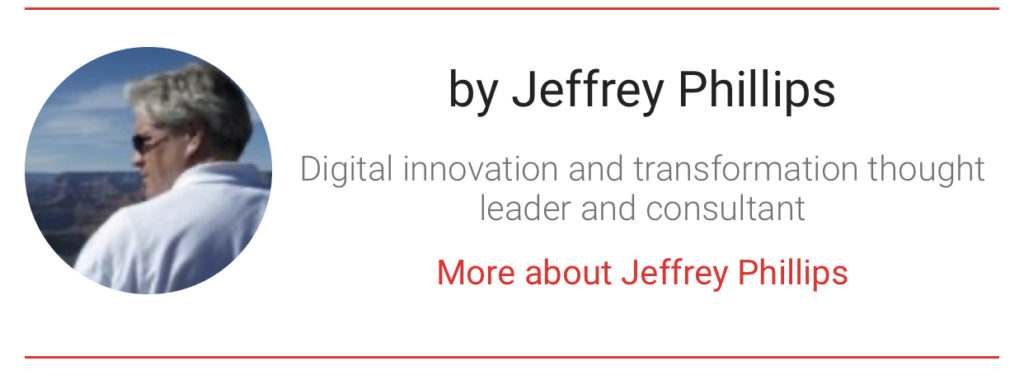It’s really crazy in the marketplace right now. Presidents are making medical pronouncements and doctors are making economic projections. The stock market can whipsaw through a thousand points of gain or loss in a day. We think we know something about COVID, until that is proven wrong a few days later.
We are in the midst of a VUCA (Volatility, Uncertainty, Complexity and Ambiguous) whirlwind right now. It will settle down somewhat in the near future, but your expectation should be that like entropy, VUCA conditions will only increase.
The real challenge now is to stop fighting VUCA, stop trying to create a company that is resistant to volatility and change, and start create corporate structures and cultures that embrace VUCA. The markets and economic conditions have already been changing dramatically, even before VUCA.
The EU could splinter, looking to the UK as an example. China is beginning to dominate the eastern hemisphere. Digital technologies will shift where work is done and who (or what) does the work. We are always living with VUCA conditions, it’s just that they are more pronounced right now in the midst of the COVID pandemic.
And, we are more likely to see more uncertain and volatile conditions for months or years after COVID is reasonably addressed.
What’s a company that hopes to grow and thrive to do? You can either resist the wave, duck under the wave, or learn to ride the wave. My suggestion: learn to surf.
Rigid and Slow
Today, most larger businesses are relatively rigid, built on a hierarchical model that reflects business structures from the past when change was slower, people had less education and communication was inadequate.
None of these factors is true today, yet most companies are still organized in siloes, with a lot of top-down command and control. This creates bureaucracy and removes local decision making responsibility, which is needed when change accelerates.
Many executives making decisions are removed from the issues or needs, and can’t understand the severity of the issue.
Of course, this isn’t just the executives’ fault. Word of an issue gets passed up the chain of command, and gets modified, tweaked, and made palatable so that once it reaches a true decision-maker, the challenge seems far less formidable.
The rapid change in the marketplace, compounded by the complexity of business operations and the uncertainty and ambiguity of the conditions and what will happen next will either freeze your organization to inaction (bad) or cause a thousand decisions and policies to be issued in the face of rapid change (often worse). Or, you can create an organization that is built to embrace more VUCA.
What does it take to surf
First, understand what’s happening and what’s likely to happen. Some change is truly unpredictable, but we are seeing that there were plenty of reports of what COULD happen with COVID, far in advance. It’s likely that this information was discounted because the risk seemed low (uncertainty) or perhaps the data was inconvenient or not trusted (ambiguous).
Companies that want to be able to surf the VUCA wave must be able to conduct consistent trend spotting and scenario planning and interpret the results. If you are watching people on TV or on Twitter talk about “bending the curve” they are talking about shifting the nature of a trend.
We have more than enough data to determine what could happen next. Actually working with trends and making predictions about the various outcomes and creating plans for likely outcomes is what helps.
Understanding and predicting what can happen will make you more adept at what to do when it does happen.
Second, decide what your values, mission and strategy tell you about your company. What things will you or must you stand FIRM on? What factors or conditions will you be FLEXIBLE about? In the middle of a VUCA whirlwind, decisions are often made in the reverse.
Things that should be FIRM and unchanging often get sacrificed, while factors where we should be FLEXIBLE suddenly become issues we cannot sacrifice.
If you and your team know your values, your mission and your strategy, it should be relatively easy to communicate to everyone what should remain a FIRM commitment and where there is great FLEXIBILITY.
Third, make your organization a learning organization. I like Microsoft’s approach, in which they’ve decided to move from a “know it all” organization to a “learn it all” organization. Your knowledge is important, but many times past experience does not guarantee future success when conditions change.
Deep knowledge is important, but so is constant learning and applying new perspectives to new conditions. Companies need to be able to learn quickly, and put new learning to work quickly, constantly adapting to volatility and change.
Fourth, be more nimble and agile. This may require reducing structure, or delegating decision making, or flattening the organization, but nimbleness and agility in key situations, allowing the right people at every level to make good decisions and act on their initiative (within the FIRM and FLEXIBLE guidelines) will pay off.
Fifth, get all the insight and data that you can to reduce uncertainty and ambiguity, but also learn to trust your team and your gut. Too often large companies get caught in analysis paralysis, waiting for just one more piece of data to make a decision.
Conditions are uncertain, the world and its future state is ambiguous. Doing good data collection and analysis is important, but so is trusting your team and going with your instincts. Better to move quickly, learn and pivot than to wait and miss opportunities altogether.
Finally, address your points of fragility and sensitivity. For too long we’ve honed business operations to a fine degree, but missed sight of the fact that in doing so we’ve created exceptionally fragile operations with many sensitivity points that will fail in a VUCA world.
Take just in time manufacturing. Works well when goods flow consistently and predictably, falls apart when new barriers go up (UK and EU) or when there are sudden shocks to the supply system.
What components of your business have very critical sensitivities that a VUCA world will expose? How fragile is your operating model? Try to find these sensitivity points and make your business a bit more robust.
There’s no better time
It’s not like some of your senior team are really busy right now. Assign a few of them to start adapting your business models and operational structures to become surfers, to ride the wave, rather than the reef, constantly pounded by changing wave patterns.
In the midst of a crisis, developing and implementing a change strategy is perhaps the best thing you can do – to position your company for what comes next. We won’t return to comfortable, status quo operations anytime soon, and even after COVID we can expect more VUCA conditions.
Use this time to build an organization that can thrive in a VUCA world.
Article by channel:
Everything you need to know about Digital Transformation
The best articles, news and events direct to your inbox










